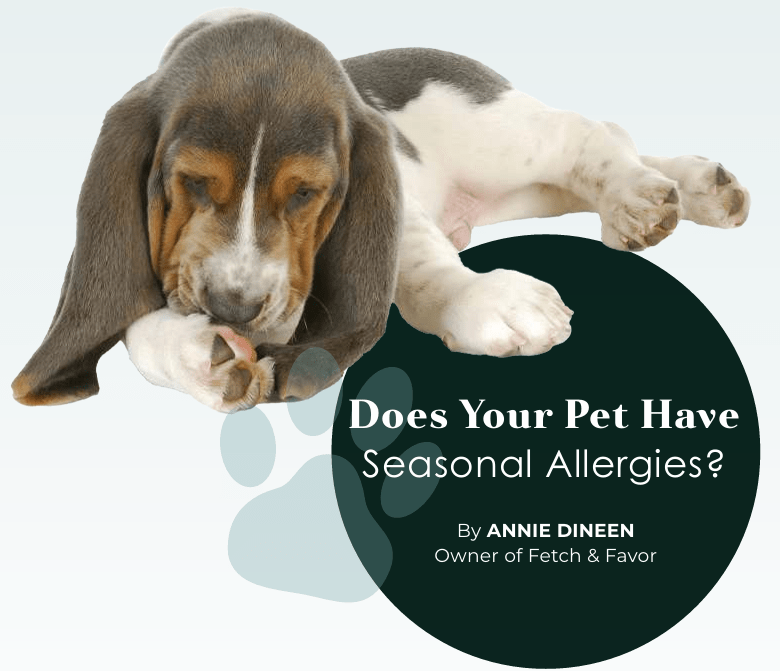Does Your Pet Have Seasonal Allergies?
Does summer have you sneezing and watery-eyed? The same might be true of your pet! Dogs and even cats can suffer from seasonal allergies, just like we can. Grass, tree pollen, and ragweed can take your dog from ah-woo to ah-choo!
WHAT TO LOOK FOR:
– Licking their paws
-Rubbing their face
-Excessive shedding
-Biting their coat or skin
-Licking their butt or rubbing it along the floor or carpet.
– Chronic ear infections
-Red, waxy, smelly, or inflamed ears
-Sneezing more than usual
-Unusually dark or thick skin
-Discoloration of itchy skin
WHAT CAN HELP?
If your dog loves a bath, you’re in luck! Washing pollen off their fur can reduce their exposure to the allergen and soothe itchy skin and paws. If they’re less thrilled at the idea of their bath time increasing, you can wipe their fur and paws down with a wet towel after walks or outdoor play to reduce the allergens they’re bringing indoors.
If your pet has an ear infection or particularly severe symptoms, talk to your vet! Allergy pills and shots can reduce their allergic response, and topical creams and balms can soothe itchy paws. Dogs can also take Benadryl to relieve symptoms, but please consult with your vet prior to ensure proper dosage.
Try local honey! We’ll admit that these results haven’t been consistently proven in studies, but it can’t hurt to try, and it’s a good tip if your allergies are in full swing too! Local honey is often made from bees visiting the same plants that cause your seasonal allergies, so by ingesting the honey, your body—and your dog’s—can adjust better to the pollen.

PETS OF THE MONTH





These are Argos (black lab) who is 4 years old & Sherlock (golden retriever) who is 5 years old.
The owners are Dr. Alison Warren and James Jacobson



This is Ginny, an 8-month-old standard poodle puppy!
Owner: Danielle Marquez



